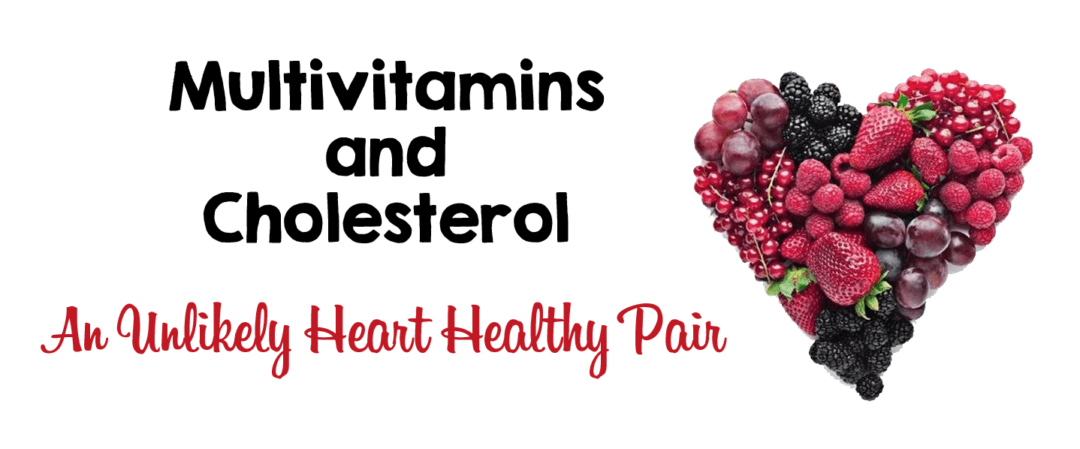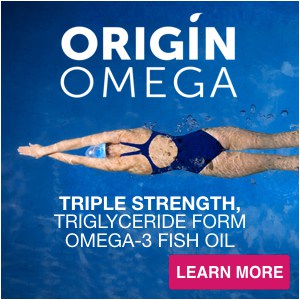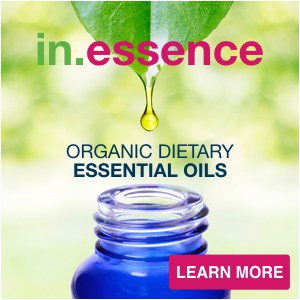In this edition of Nutrition In The News, we have two stories that will have your heart jumping for joy.
First, ladies, get ready to rejoice! There has been a lot of controversy surrounding the benefits of taking a daily multivitamin supplement as of late. You know what we’re talking about; one day you read how multivitamins are great for you and the next day it’s the other way around, that multivitamins are just a waste of time, that all your doing is flushing your hard earned money down the toilet, and that taking one may even be detrimental to your health. Now, the fact that you’re reading this indicates that you probably know where we stand on this issue. Just in case you don’t – WE ARE HUGE ADVOCATES OF SUPPLEMENTATION – especially properly formulated supplements like our multivitamin, nutreince. And while we did create the ABCs Of Optimal Supplementation Guidelines to point out the 4 formulation flaws common to today’s most popular multivitamins (a must watch for anyone not currently taking nutreince), in the end we are strong believers that taking a daily multivitamin is essential to optimal health. So for all of you who, like us, have stuck to your guns, ignored the naysayers and continued to take your daily multivitamin here’s proof that not only was your intuition right all along, but also that taking a daily multivitamin may just save your life.
In a brand new study published in The Journal Of Nutrition using data collected from 8,678 men and women age 40 and older, researchers concluded that women who had taken a multivitamin/multimineral supplement for at least three years had a 44% lower risk of death from cardiovascular disease than those who did not take a multivitamin/multimineral supplement.[1] That’s pretty significant – right? And this lower risk of death was from taking a regularly formulated multivitamin, which likely still contained the 4 formulation flaws we mentioned earlier. You always knew that you felt better, had more energy, and could focus more clearly when you took your multivitamin, but you probably never thought that it could save your life.
Hold on men, we have some great news for your heart too. Even though the American Heart Association (AHA) reminds us that cardiovascular disease is the leading cause of death in the United States, that we need to exercise more, stress less, and watch what we eat, the U. S Dietary Guidelines Advisory Committee, a panel that provides recommendations for the U.S. Dietary Guidelines, recently decided to drop the 50 year long government warning in regards to the consumption of cholesterol-laden foods. That’s right, they were wrong about cholesterol. The foods that we all love, the ‘good’ fats; eggs, bacon, beef, whole milk, real cheese, and shrimp are all back on the table. We told you these foods were good for you! Of course we are taking about organic, non-GMO, pastured raised eggs, grass-fed versions of these foods. According to a recent article in The Washington Post, “The finding follows an evolution of thinking among many nutritionists who now believe that, for healthy adults, eating foods high in cholesterol may not significantly affect the level of cholesterol in the blood or increase the risk of heart disease.” And Walter Willett, chair of the nutrition department at the Harvard School of Public Health calls the turnaround on cholesterol a “reasonable move.” [2] In fact, study after study show that having higher cholesterol is actually healthier than lower cholesterol. In a study published in Journal of the American Medical Association by Dr. Harlan Krumholz of the Department of Cardiovascular Medicine a Yale University he found that older people with low cholesterol died twice as often from heart attacks as those with high cholesterol.[3] And for those of you scratching your head and wondering how all this saturated fat could be good for your heart—relax. A 2010 study published in The American Journal of Clinical Nutrition, has found there to be no correlation between saturated fat intake and coronary heart disease, stroke or cardiovascular disease.
The Advisory Committee offered other changes as well, which include coffee; it’s now being acknowledged that moderate coffee intake can be a part of your healthy daily diet. Remember, stick to organic, fair trade coffee whenever possible to protect yourself from potentially dangerous pesticides. In our soon-to-be released new book, The Micronutrient Miracle 28-day Plan, we actually suggest coffee as part of the daily protocol. And since it is now common knowledge that our modern diet often falls short of many essential micronutrients, such as vitamins A, C, D and E, potassium, calcium, folate, and magnesium, the Advisory Committee acknowledged the fact that dietary supplementation is important.[4]
And finally, the Advisory Committee is trying to catch up to the times by identifying a major culprit in our fight against obesity and disease…SUGAR! (remember from Naked Calories and Rich Food Poor Food, that sugar is a major micronutrient deplete) For the first time the panel recommended that Americans limit their consumption of sugar to no more than 10 percent of daily calories — roughly 12 teaspoons a day for many adults — because of its link to obesity and chronic disease. While this may seem like a step in the right direction, sadly, we are still falling behind the times, as the World Health Organization (WHO) in 2014 and the American Heart Association way back in 2009 drafted guidelines to reduced the recommended daily intake of sugar for people around the world to 5 percent of their diets. (approximately 6 teaspoons) Well, at least it is a move in the right direction…less sugar and more fat—We sure are happy that the times they are a changin’!
So, in the end this is all great news, your daily multivitamin may just save your life and delicious tasting cholesterol-laden foods like organic eggs and grass-fed beef are back on the table. So the next time someone tells you that your just wasting your money on your supplements or that you should skip the steak and eggs for breakfast you can just smile inside, because now you know better – happy heart awareness month!
[1] Bailey RL et al. Multivitamin – Mineral use is associated with reduced risk of cardiovascular disease mortality among women in the United States. J Nutr 2015 doi:10,3945/jn.114.204743
[2] https://www.washingtonpost.com/blogs/wonkblog/wp/2015/02/10/feds-poised-to-withdraw-longstanding-warnings-about-dietary-cholesterol/
[3] Krumholz HM and others. Lack of association between cholesterol and coronary heart disease mortality and morbidity and all-cause mortality in persons older than 70 years. Journal of the American Medical Association 272, 1335-1340, 1990.
[4] Scientific Report of the 2015 Dietary Guidelines Advisory Committee. Available from: https://www.health.gov/dietaryguidelines/2015-scientific-report/PDFs/Scientific-Report-of-the-2015-Dietary-Guidelines-Advisory-Committee.pdf











